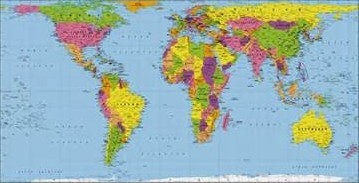Slavery in RI
QUOFLECTIONS™
ON SPIRITUALITY AND ETHICS
“Our only hope today lies in…
declaring eternal hostility to
poverty, racism and militarism.”
Dr. Martin Luther King
“It’s 2005. Get over it!” This is a white male’s response to Dr. Richard Lobban’s lecture on the history of slavery in Rhode Island. This remark enrages a black woman who immediately responds that blacks still suffer from institutionalized racism.
What is the truth? Does the history of slavery in Rhode Island affect our lives today? If so, how?
Frankly, I am thrilled by Lobban’s presentation. While it is well known that trillions of dollars would be required for slave reparations, this Rhode Island College professor details the extensive interconnection of business interests financed by slavery. The implications are extraordinary.
Rhode Island was the dominant New England slave-trading state. Until 1787, slavery in Rhode Island was legal. The ports of Providence, Newport and Bristol welcomed slave ships. Indeed, Rhode Island ships transported at least 100,000 slaves.
On a walking tour of Providence, Lobban demonstrates the “triangle trade.” Slaves unloading on the east side of the Providence River at Water Street are delivered to storehouses still visible. The money from marketing Africans is then deposited in the nearby Providence Bank located at 50 Market Street. Viewing these historic sites makes these inhumanities conceivable.
The slave trade also gives birth to globalization by interweaving the economics of four continents. Our state’s plantation economy financed businesses such as shipbuilding, banking, insurance and newspapers, and the production of commodities such as cotton, tobacco, lumber and rum. Even after Rhode Island slavery is illegal, the chains shackling slaves continue to be manufactured. Similarly, many of our business owners still benefit from the slave trade.
Perhaps the preeminent Rhode Island slave trader is John Brown. Considering Great Britain’s profits from slavery, Brown writes, “Why not our country be enriched by that lucrative traffic?” Brown University’s founder owns—according to President John Quincy Adams—the continent’s “most magnificent and elegant private mansion.” Brown financed his mansion through slavery, utilized several slaves on the property, and advocated slavery in Congress.
What can we learn from slavery today? Consider the interconnections of many industries built on capital from the slave trade. The wealth of the United States—particularly in contrast with Africa and Latin America—is a direct result of our exploitation of these continents. The slave trade establishes their impoverishment as well as our prosperity. Contrary to myth, our extensive infrastructure is surely more attributable to injustice than ingenuity.
Moreover, the abolition of slavery does not initiate a new era of economic righteousness. Instead of reparations, inequities are expanded through colonialism. The United States and the European powers subjugate the two continents to their south. So the heinous brutality of killing and kidnapping the inhabitants of other continents is superseded by military invasion, occupation of their lands, and misappropriation of their labor and resources.
As third world countries increasingly gain their political independence in the latter half of the twentieth century, the accumulated debts of these nations leave a legacy of economic dependence. The austere policies imposed by first-world governments and institutions perpetuate their poverty.
Colonialism deserves its bad reputation, but today’s neo-colonial era continues the exploitation of cheap labor and resources. Slavery has a new form; its economics persist to this day. How can we tolerate more than a billion people subsisting on a dollar a day? Don’t they deserve restitution for centuries of social and economic injustices?
What can we learn from slavery today? We can perceive that our affluence is rooted in unrighteousness. Believing that the truth sets us free, we will accept responsibility for our transgressions, and experience liberation from the self-serving delusion that God ordains the United States the greatest nation on earth.
Only by acknowledging the darkness of past and present practices will we atone for our atrocities. Perhaps by seeking liberty and justice for all peoples, we will use our power to heal rather than harm, reversing the current trend of alienating nations that could otherwise be counted as allies.
©2005 Harry Rix. All rights reserved.
Related Articles
Appreciating the Prophet of Love
Does Racial Inequality Persist?
Seeking Racial Justice is both Personal and Political
Reasons for Riots
Transforming Our Racist Culture
Faith and Love Can Heal Our Divisions

